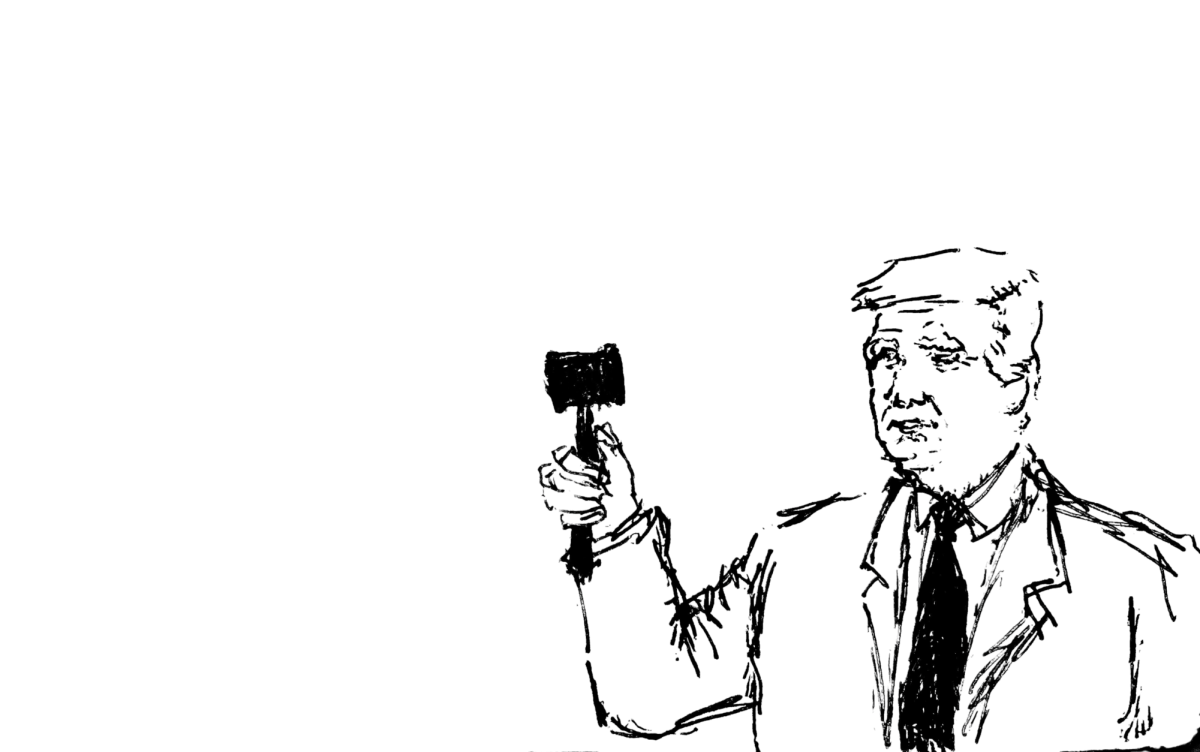On March 24, a ding went off on Jefferey Goldberg’s phone. Goldberg, the editor-in-chief of The Atlantic, was mistakenly added to a top-secret national security group chat on the Signal App. The messages, originally intended for US national security officials, discussed military operations, specifically upcoming attacks on Houthi targets in Yemen. Even Goldberg “didn’t think it could [was] be real… but then the bombs started falling.” This incident is part of the broader trend of the Trump administration’s failure to handle classified information and correctly safeguard national security, which is undeniably endangering the security of the United States. The secrets spilled and Goldberg saw them all.
This is not an isolated incident; it’s a part of a doubling pattern of negligence. After all, how could someone like Goldberg, a journalist with no ties to the administration, gain access to such highly classified information? Is the Trump administration that lazy that they couldn’t double check whom they were sending airstrike planning to? The simple answer is yes- they were that lazy. Throughout his presidency, Donald Trump and his administration have mishandled sensitive information. Dating back to 2021, after Donald Trump left office, he was legally required to return all classified documents and records to the National Archives and Records Administration (NARA). Rather than obeying the law, however, Trump decided to send dozens of boxes, filled to the brim with classified materials, to his private, non-governmental residence at Mar-a-Lago in Palm Beach, Florida. After a thorough FBI search, it was revealed that, unsurprisingly, the documents were not properly stored or safeguarded in a secure government facility. Treating classified information like an Amazon package—something that you can ship across the country and do whatever you please with—is not conducive to the protection of national security. Leaving hundreds of documents visible to the public eye poses an obvious threat to the United States. The accidental inclusion of Goldberg in this group chat is just another example of Trump’s persistent failure to follow established security protocols. Our secrets should not be mishandled.
Failure to safeguard classified information directly threatens the national security of the United States. Even though Goldberg did not publish the given information at the time, the mere fact that a journalist had access to this information is appalling. Allowing an outsider to access ongoing military plans poses a serious national risk to the United States; if that information had been leaked, it could have given enemy forces time to prepare, compromising the mission and putting lives at risk. Beyond the US, allies and foreign governments place trust in their administrations for withholding classified information for potential plans. Accidentally sharing this information, through a careless mistake like a misclick, could lead us to lose the trust our allies have in our ability to protect confidential information. Endangering our international relationships with a simple misclick is unacceptable recklessness.
A simple misclick is something that has huge potential to endanger our country. Goldberg’s unintentional access to these messages sent a clear message to the world that the US is not handling its security properly. Not only does it reflect poorly on the Trump administration’s ability to protect the United States and its interests but undermines the credibility of the US as a reliable partner.
The stakes are incredibly high, and the fact that some of the highest officials of our government could put all of that at risk is, frankly, embarrassing. If the administration can’t protect a group chat, how can it be trusted to protect a nation? Recklessness has no place in the management of our country’s national operations, and the causal disregard of basic security protocols is not just sloppy- it’s dangerous. It’s a symptom of a broader failure of leadership. And Trump’s inability to take national security seriously indicates a fundamental unfitness for the responsibilities of his presidency.






